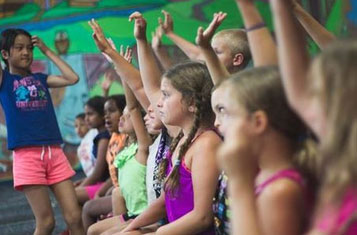 Just like not all classrooms in a given school are child-centered, nor are many child care programs child-centered. What does that mean? Well, if a given school-age child care program is not child-centered, what is it? Of course it is adult-centered. This means, the child care program revolves around the adults in charge and not on the children being served. Adult-centered environments tend to be one where adults require full control of the children and the environment. It is a more traditional approach to making sure the children are quiet, micro-managed and not stepping out of any prescribed boundaries such that the adults may have to monitor programs as opposed to being directly controlling of them at all times. Child care environments that are child-centered tend to have more creative outlets. Children get to explore, test boundaries, socialize within an age-integrated setting, engage in activities that offer them an opportunity to think, strategize, and test their creative wits, make choices, and ultimately learn through socialization and play. Free play environments are not child-centered because they offer nothing outside of unguided play. Nor are environments with overbearing adults offering little to no creative options throughout the afternoon. Child care environments that are child-centered are guided by hands-on adults who engage with children in positive ways, who understand a particular child’s needs, the developmental differences between children of various ages, and can establish and or maintain a child care environment that fosters these developmental needs. When looking for a strong school—age child care environment parents are right to learn about what that programs underlying philosophies are and how they are put into action during the planning process. Many child care programs pretend to be something they are not by touting virtues that go unpracticed internally, adventure that is never fleshed out to be connected (adventure is just a word, but what does it really mean? Is it a word that is geared toward getting one in the door, or is directly related to a child care programs particular practice?) to what truly goes on in a given child care environment, and by failing to invest in the materials that are needed for children to thoroughly engage and have an experience. Child care programs that invest in children, who understand their developmental, psychological, emotional and social needs and then tailor programs and experiences that directly meet those needs are the best places to be. When seeking a child care program, parents should first of all examine at least 2-3 options, ask questions, observe the program, examine feedback and also understand that not all programs are good or the same. Parents often go into child care searches believing that they are all the same. Just a place for their child to go. But this is not the case. Some, perhaps, but not all child care programs focus on the child and have strong programs that answer the needs of the child in much stronger ways than others. TSL Adventures is an Albany, New York-based organization that provides before- and after-school child care, vacation programs and summer camps.
0 Comments
The Ideas Written About In This Blog Are Based On The Personal Opinions And Philosophies Of The Contributor Who Has Taught Elementary School For Twelve Years And Has Run A Recreational Childcare Business Since 2009. Leave a Reply. |
|
